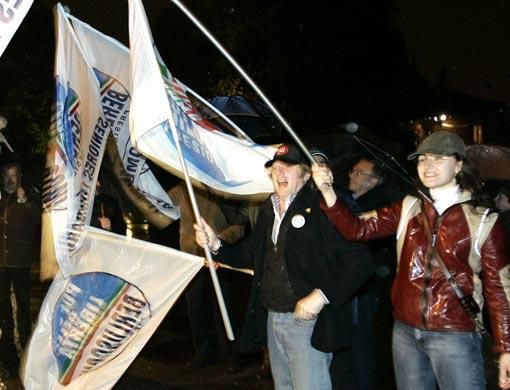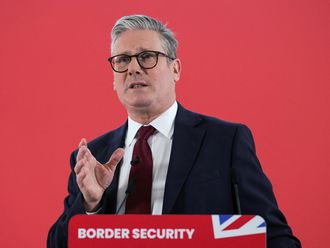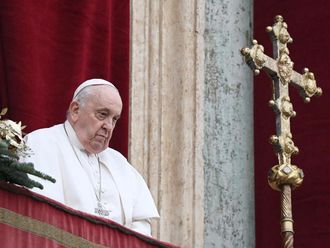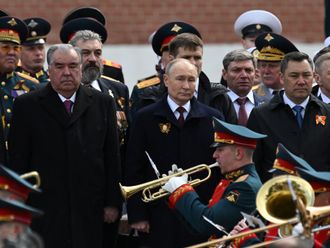Rome: Italy's Silvio Berlusconi pledged on Tuesday to use his big election win to push through economic reforms, and vowed to close the border to illegal immigrants in a crackdown on criminals he called "the army of evil".
The 71-year-old conservative secured a third term as prime minister on Monday but owed his majority in both chambers of parliament to the support of the xenophobic and protectionist Northern League, which won about 8 per cent of votes.
In comments likely to be applauded by the League, he promised tough measures against crime, blamed by many Italians on illegal immigrants, as well as an Italian rescue for Alitalia airline and an end to a garbage crisis in Naples.
"One of the first things to do is to close the frontiers and set up more camps to identify foreign citizens who don't have jobs and are forced into a life of crime," Berlusconi said in a television interview.
"Secondly we need more local police constituting an 'army of good' in the piazzas and streets to come between Italian people and the army of evil," he said.
Incomplete results show the anti-immigrant Northern League will be the third-largest force in parliament after Berlusconi's People of Freedom and the Democratic Party of defeated centre-leftist Walter Veltroni.
The League's leader, Umberto Bossi, told La Stampa newspaper the government must overhaul tax laws and crack down on illegal immigration or risk its anger.
"Now we need to do reforms, or we will lose our patience," he said.
A drubbing for the far left means Italy will not have a communist or a socialist lawmaker in parliament for the first time in recent memory. The Northern League's Roberto Maroni said this meant "the Berlin Wall has now fallen in Italy too".
Parliament has been purged of tiny parties which, for years, held governing coalitions hostage. Romano Prodi quit as prime minister in January after a small Catholic party defected.
"This framework is good news: the blackmailing power of smaller parties has been drastically reduced, and Italy is now more aligned to the experience of several other European countries," said UniCredit bank economist Marco Valli. There will now be only six parties in parliament, as opposed to more than 20 after the 2006 election.













